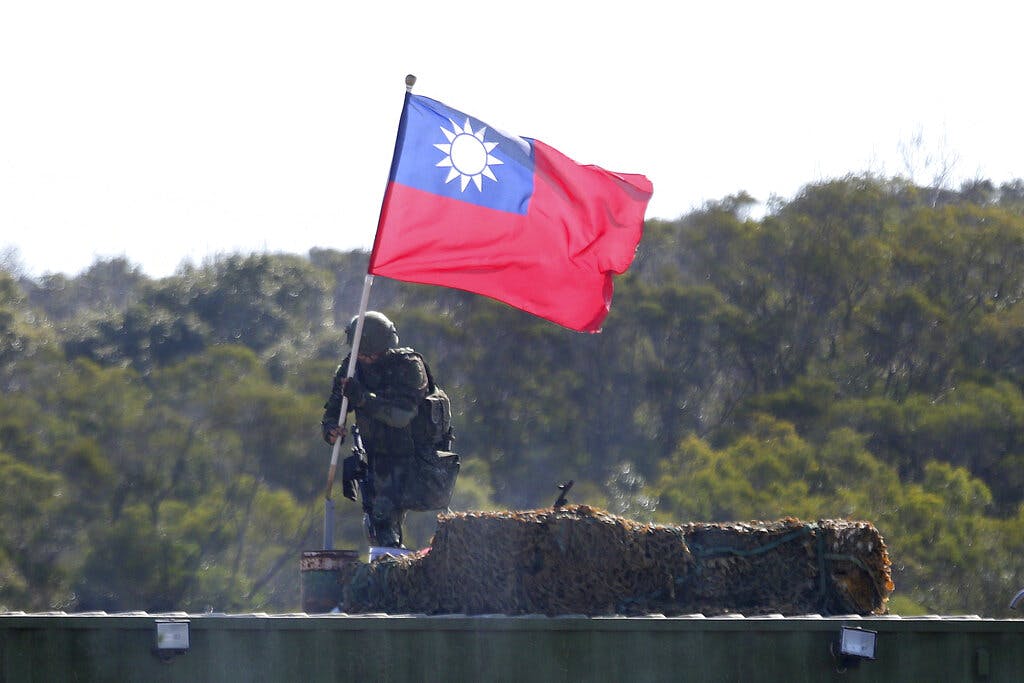The Logic of Arming Taiwan Now
If we are going to back China’s only democratic government, it makes sense to do it now, so that it has a deterrent effect, not later, as happened in respect of Ukraine.

Quite a battle is brewing in Congress in respect of arming Free China. It pits, on the one hand, leading Democrats and Republicans in the House and Senate who are in favor of moving sooner and in a bigger way to arm the only Chinese democracy, and, on the other hand, President Biden, who is exhibiting the same kind of appeasement mentality that he is showing in respect of Iran. In this dispute, we’re with the Congress.
The dispute is over a bill called the Taiwan Policy Act, which last week cleared the Foreign Relations Committee by a vote of 17 to five and is now before the full Senate. If enacted into law, it would mark the first time America “will directly finance weapons for Taiwan,” the Financial Times notes. It would also furnish $2 billion for loans to help the island democracy buy arms. It would require sanctions on Communist Chinese banks in the event of aggression.
The measure has bipartisan backing in the upper chamber. The committee chairman, Senator Menendez of New Jersey, frames the bill as a means of “lowering the threats facing Taiwan by raising the cost of taking the island by force.” He reckons this would make such a proposition “too high a risk” for Beijing. Senator Risch, Republican of Idaho, says “it’s imperative we take action now to bolster Taiwan’s self-defense before it’s too late.”
Communist China’s increasingly warlike posture toward Taiwan appears to have “united dovish Democrats and hawkish Republicans of late,” Politico reports. The Democrats are even reconsidering their long-time policy of “strategic ambiguity” toward the fate of Taiwan and want to, as Politico puts it, “declare that Washington will defend Taipei militarily from an invasion” — in other words, a policy of “strategic clarity.”
We’ve noted the risk that American ambiguity could embolden the communists to move against the Republic of China, even raising the possibility of igniting a larger war like that which erupted after Britain failed to clarify its intention to defend Belgium against a German incursion in 1914. Others say that Red China today, like Germany then, is a rising power driven by “aspiration and anxiety” — and that Beijing might take a gamble absent a clear warning.
That point is marked by Hal Brands and Michael Beckley in their book “Danger Zone.” They suggest “the best way to avoid a looming war in Asia is to make clear that Beijing cannot win at anything like an acceptable cost.” Even the Times, in a recent editorial, has said “clarity could help.” The Congress appears to have gotten the message. So why the “White House misgivings,” as Politico calls them, over the Taiwan Policy Act?
The bill faces, Politico reckons, “a murky path to law,” in part due to fears in the Biden administration that it risks “upending U.S. policy at a time when tensions remain high between Washington and Beijing.” Could such concerns be nursed by the same members of Mr. Biden’s camarilla who walked back — not once but four times, most recently Sunday evening — the president’s vows that America would defend Taiwan in case of an attack from China?
As for Beijing, the Financial Times observes it opposes the bill, accusing America of “diluting the One China policy,” under which the United States “recognizes Beijing as the government of China, without endorsing, its view that Taiwan is part of China.” That diplomatic suspension of disbelief “has existed since the U.S. and China normalized diplomatic relations in 1979,” the FT reminds. The White House claims it is abiding by the One China policy.
To that end, the FT reports, the administration “persuaded Democratic senators to alter parts of the bill it saw as symbolic” — like renaming Taiwan’s “embassy” in Washington to the “Taiwan Representative Office” from the “Taipei Economic and Cultural Representative Office.” Such steps were seen as counterproductive, not helping “secure Taiwan” but merely helping “foster Beijing’s assertions the U.S. was diluting” its commitment to One China.
If we are going to back the sole Chinese democracy, the logic is to do it now, rather than wait. Military aid to Taiwan, paired with the threat of sanctions — a tool whose impact Beijing fears, press reports say, after Russia’s Ukraine invasion — would be a boost to morale at Taipei. It also sends to Asia a signal of our willingness to back those allies, who, after Mr. Biden’s surrender of Afghanistan and dalliance with Iran, might doubt America’s resolve.

